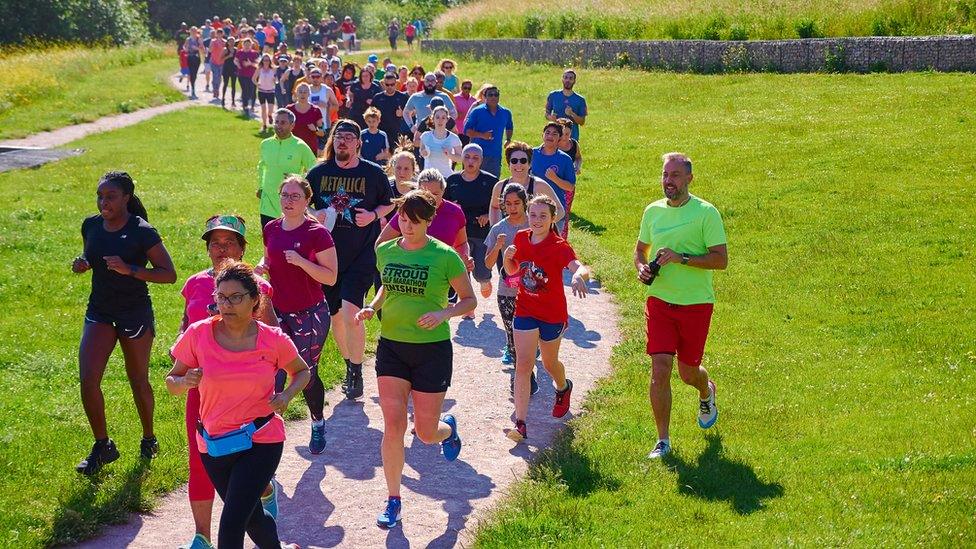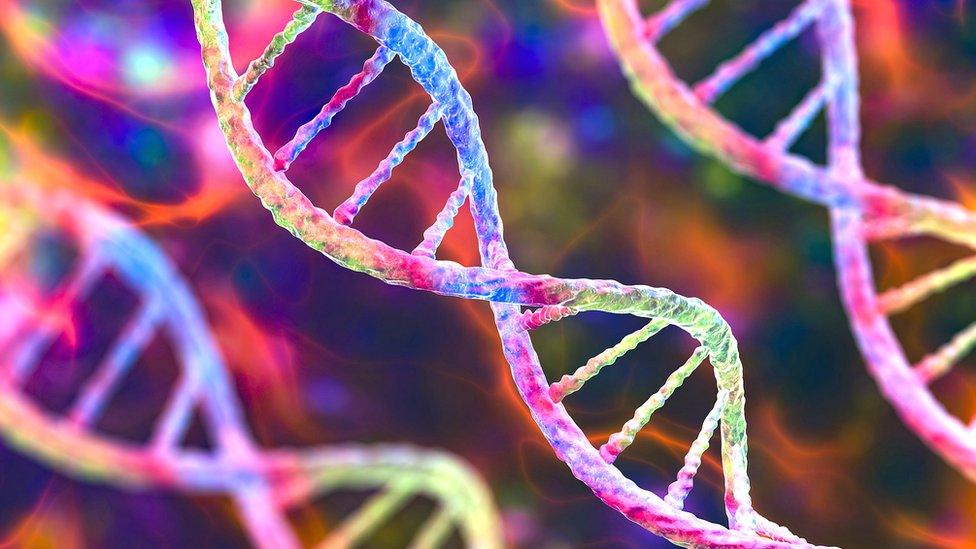Essex University study finds link between genes and sporting ability
- Published

Top performers had a combination of 19 key gene variants linked to running performance, the research said
Genetics play a major part in athletic performance and a person's response to training, according to a new study.
Researchers at the University of Essex found fewer than 31% of people had the unique makeup to make the most of training.
They found top performers had a combination of 19 key gene variants linked to running performance.
Henry Chung, who led the study, external, said it showed "DNA can make a real difference on how much you can push your limits".
The study said those with the key genetic coding improved by an average of 11.5% after eight weeks of endurance training.
Those without the key gene variants, known as single nucleotide polymorphisms, showed little or no improvement even when exposed to the exact same training, it said.
The university said it was the first time, in combination, that "all these key markers that spark success" had been listed together and examined by scientists.

"DNA can make a real difference on how much you can push your limits," said Henry Chung, who led the study
Dr Chung said: "This study supports the fact that genetics play a major part in athletic performance and training responses.
"Whether you are an elite competitor or training for a fun run, your DNA can make a real difference on how much you can push your limits."
But, he said, it was "not all bad news if you lack these".
"What really matters is going out, training and being active," he said.
"After all it doesn't really matter what genes are hidden in your body if you are not living an active life and utilising them.
"As they say 'hard work will always beat talent if talent refuses to work hard'."
As part of the study, he conducted laboratory and field-based tests, where both men and women aged between 20 to 40 were tracked for two months.
He used the Cooper Test to measure performance, which the military uses to establish aerobic fitness.
Participants were asked to run as far as they could in 12 minutes by running on a marked track across the eight-week study.
Out of the thousand genes analysed, all of the top performers had the same variants linked to the 'ACTN3' gene, which is associated with adaptability, speed and power, improved strength and reduced injury.

Follow East of England news on Facebook, external, Instagram, external and Twitter, external. Got a story? Email eastofenglandnews@bbc.co.uk , externalor WhatsApp 0800 169 1830